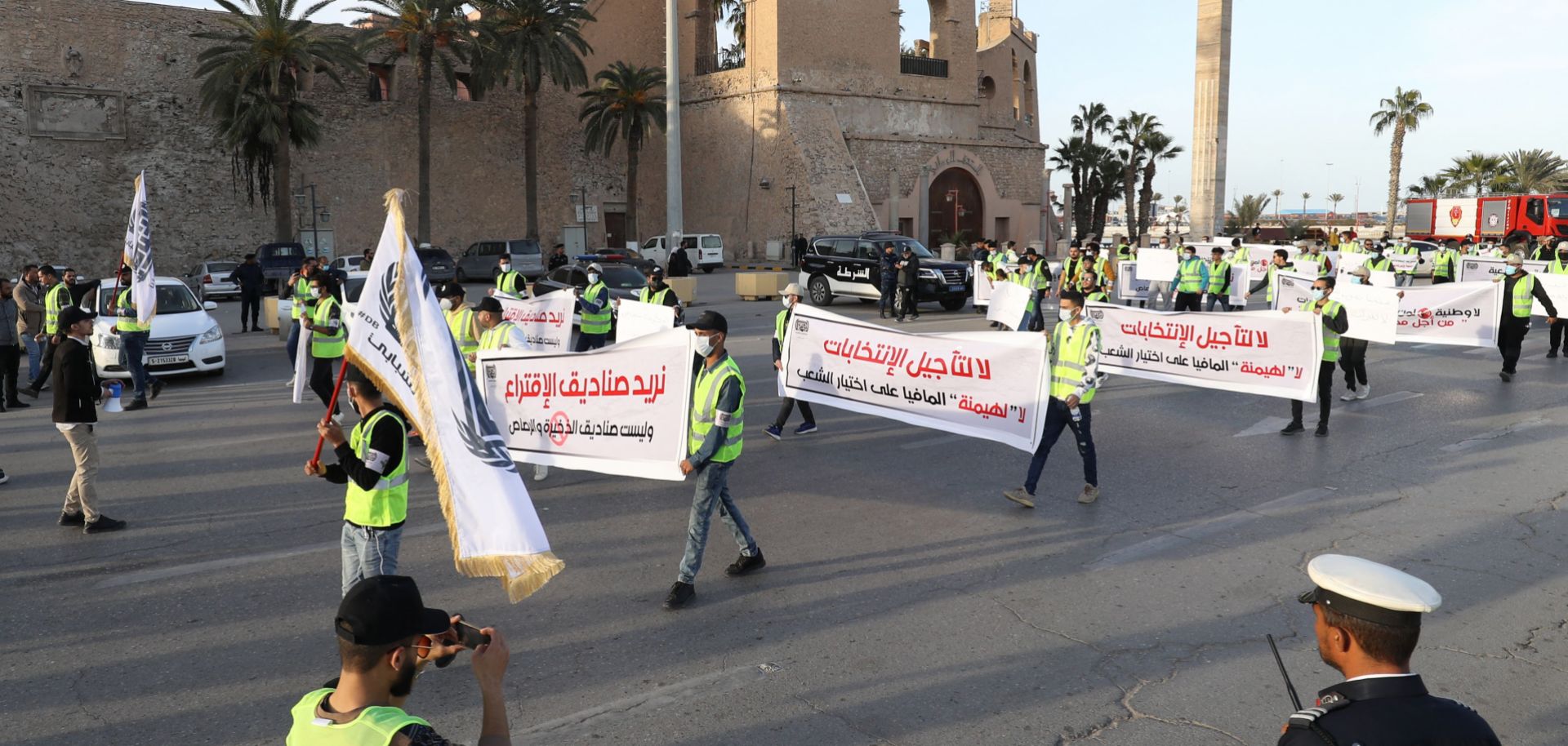Delays to Libya’s planned presidential election will resolve neither the disagreements over how the ballot should be organized nor the controversy surrounding the top candidates. The vote, whenever it is held, will thus fail to truly unify the country as intended, and could eventually spur more violence by deepening divisions between warring Libyan factions. On Dec. 21, Libya’s High National Election Commission called off the planned Dec. 24 presidential election, blaming the country’s parliament, the House of Representatives (HoR), for failing to resolve disagreements over the country’s presidential election law and saying it was up to the HoR to decide a new date. On Dec. 22, the commission proposed a one-month delay to Jan. 24, when the presidential vote could coincide with planned parliamentary elections, which are just as divisive as the presidential election. The HoR met on Dec. 27 to discuss the path ahead, but the discussion quickly fell...

